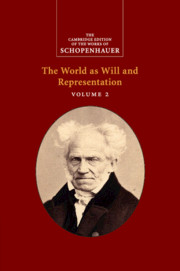Chapter 44 - Metaphysics of Sexual Love
Published online by Cambridge University Press: 30 June 2022
Summary
You wisest of men, your learning is rare,
And so you must know even this,
How where and when does everyone pair?
Why do they love and they kiss?
You wisest of men, please tell me this now,
Your wisdom allows you to see
All that I seek, which is what where and how
And why this has happened to me
BürgerThis is the last of four chapters that are interconnected through so many cross-references that they form something of a subordinate whole, and the attentive reader will recognize this without requiring me to interrupt my discussion by explicitly recalling and referring to them.
We are accustomed to seeing poets concerned mainly with the description of sexual love. For the most part this is the principal theme of all dramatic works, tragic as well as comic, romantic as well as classical, Indian as well as European: it is no less the material for the vast majority of lyrical poetry, and likewise epic poetry, particularly if we want to include the great piles of novels that have been generated every year for centuries, as regularly as the fruits of the ground, in all the civilized countries of Europe. The principal concern of all these works is nothing other than many-sided descriptions, whether brief or extensive, of the passion under discussion. And the most successful descriptions of this passion, such as Romeo and Juliet, the New Heloise, Werther, have gained immortal fame. But when La Rochefoucauld claims that passionate love is like ghosts: everyone talks about them but no one has seen them: and if likewise Lichtenberg, in his essay ‘On the Power of Love’ challenges the reality of this passion and denies it, then this is a huge mistake. For it is not possible that something alien to human nature and inconsistent with it, a bit of nonsense simply plucked out of thin air could be tirelessly portrayed in all ages by poets of genius, and received by humanity with unwavering interest – because there can be no artistic beauty without truth:
Nothing but the truth is beautiful; the truth alone can be loved.
Boileau- Type
- Chapter
- Information
- Schopenhauer: The World as Will and Representation , pp. 547 - 582Publisher: Cambridge University PressPrint publication year: 2018

